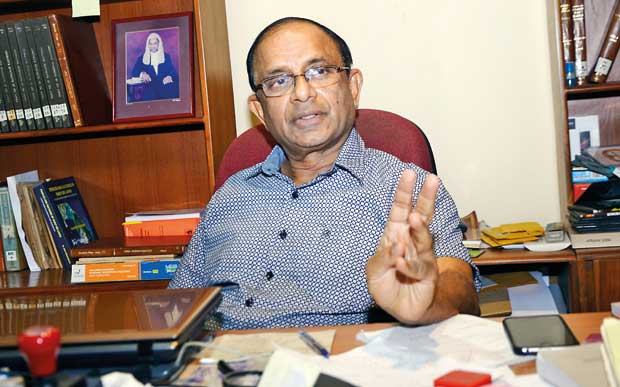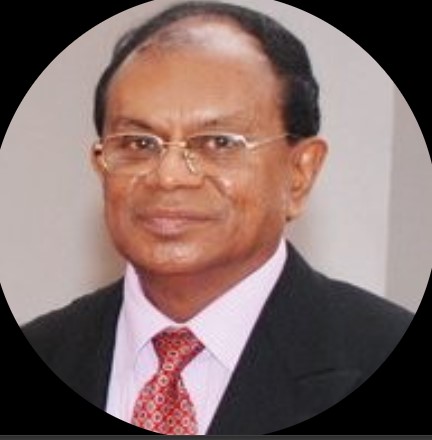By P.K.Balachandran/Daily Mirror
Colombo, October 18: According to media reports, President Ranil Wickremesinghe and Justice Minister Wijeyadasa Rajapakshe are discussing the prospect of replacing the Executive Presidential system with a Westminster-style parliamentary system before the next Presidential election in 2024.
They are also contemplating a parliament with 160 of the 225- members directly elected under the First Past the Post (FPP) system and 65 elected under the Proportional Representation (PR) System appointed under the National List.
This reflects a periodic dalliance with the idea of abolishing the discredited Executive Presidency (EP). But every time, the insatiable thirst for absolute power would quash the bid for reform. For 23 years Sri Lankan Presidents and political parties have had the abolition of the EP as a key election promise. But once elected, they would all jettison it.
President Chandrika Kumaratunga came the closest to abolishing the EP when she actually presented a draft new constitution in parliament in 2000 after prolonged consultations. But the opposition United National Party (UNP) sabotaged it. In October 2001, under Prime Minister Ranil Wickremesinghe of the UNP, parliament passed the 17th Amendment to create a Constitutional Council and Independent Commissions to de-politicise the administration and clip the wings of the EP.
However, the functioning of these structures was hampered. In September 2010, President Mahinda Rajapaksa nullified the 17th Amendment with the 18 th.Amendment to restore the powers of the EP. But the government of Maithripala Sirisena restored the nullified institutions through the 19 th.Amendment in 2015. Come October 2020, the Gotabaya Rajapaksa government’s 20 th, Amendment restored the President’s powers substantially.
Now again, in October 2023, there is talk of abolishing the EP and going back to the parliamentary system. According to Daily Mirror the change-over is being mulled because no candidate is likely to get the required 50% plus of votes cast in the next Presidential election. But others say it is but a ruse to postpone elections indefinitely.
Experts Favour Parliamentary System
Whatever the reason, constitutional experts favour a return to the Westminister-style parliamentary system which prevailed in Sri Lanka between 1948 and 1977. Constitutional expert Dr. Jayampathy Wickramaratne says there is a strong case for a switch-over to the parliamentary system.
In the parliamentary system, decision-making is “collegiate”, while in the Presidential system, it is centralized in the President. “Collegiate decision-making is particularly suited to a multi-ethnic, multi-religious and multi-party country like Sri Lanka,” he says.

In the Presidential system, on the other hand, there is enormous room for arbitrariness because of the concentration of power in the hands of the EP.
In his paper on the 1978 constitution (which introduced the EP system) political scientist Dr.Laksiri Fernando says that the Sri Lankan system is “one of the most authoritarian forms of the Presidential system.” The 1978 constitution diluted the Rule of Law by giving the President powers that could not be challenged in courts of law.
Dr.Fernando describes the President’s power harshly as a “malignant tumour which developed into dangerous cancers in the body politic” leading to a “breakdown of democratic rule of law.”
He argues that human rights are best safeguarded in a parliamentary system. He contrasts the human rights conditions in Sri Lanka when the parliamentary system prevailed (between 1948 and 1977) with the conditions under the Presidential system (from 1978-till date).
He acknowledges that the 1978 Constitution stands out for its chapter on Fundamental Rights. But in its working there have been “horrendous” human rights violations. The rights situation under the parliamentary system was far better, Dr.Fernando contends.
Background to 1978 Change
Why was the parliamentary system abandoned in 1978? It was the troubled political situation in the 1970s, Dr.Fernando says. The first Janatha Vimukthi Peramuna (JVP) insurrection ocurred in 1971. Ethnic/language troubles were brewing in the Tamil North and East. In 1976, the Tamil United Liberation Front (TULF) passed a resolution seeking a separate Tamil Eelam. The economy under Sri Lanka Freedom Party’s (SLFP’s) socialistic regime from 1972-77 had caused widespread misery.
In the 1977 general elections, the opposition UNP got 50.92% of the votes and bagged 140 seats in the 168-member parliament. The ruling SLFP received 29.72% of the votes polled but got only 8 seats. The secessionist Tamil United Liberation Front (TULF) with just 6.75% of votes bagged 16 seats and its leader A.Amirthalingam became Leader of the Opposition.
These political anomalies created a demand for a structural change. The new Prime Minister, J.R.Jayewardene (JR), revived his thoughts on the change required that he had formulated a decade earlier.
JR’s Blueprint
Dr.Fernando traces, JR’s thoughts on a new political structure to a speech delivered by him on 14 December 1966 at the Ceylon Association for the Advancement of Sciences (CAAS). There he proposed a Presidential system on “rational and scientific” grounds. He contended that Ceylon had failed to achieve economic progress because of its political system.
“Politicians in power knew what was wrong in the economy, they were also aware of the remedy, but the desire to be popular and to secure a majority of votes at a general election prevented them from taking the correct remedial measures.” Democratic freedoms were justified, JR said, but wondered if only these satisfied the people.
“While counting the preservation of democratic freedoms as one of our achievements since Independence, we have not achieved the economic freedom that our people are entitled to. This has been our major failure,” JR said. Adoption of reforms that would help the nation solve its problems effectively and expeditiously, was necessary, he argued.
JR also wanted to abolish the ‘electorates’. He wanted to “unplug” the legislators from their voter base and make people vote for a list prepared by the political parties, Dr.Fernando says. JR said that the prevailing electoral system precluded the best-equipped men and women from taking part in politics. He believed that political parties were best qualified to nominate the most suitable candidates. The voters could choose from the list put up by the parties.
In the 1978 Constitution, which he authored, JR introduced the Executive Presidential system and proportional representation in place of the parliamentary system. Voting for party lists rather than individual candidates was introduced. The electorate system was abolished and replaced by District-wise representation. The elected legislators were not responsible to the voters but to their parties. Candidates had no intimacy with the voters, Dr.Fernando points out.

No Idealism
According to the political scientist, “there was some idealism behind the 1972 Republican Constitution based as it was on a mixture of tradition, socialism and nationalism, but in the 1978 Constitution there was only pragmatism and political craftiness.”
The 1972 parliamentary-style Constitution strengthened the legislature, but the 1978 Constitution strengthened the Executive making it an exceptionally powerful one.
JR was also against the cabinet system of government that prevailed from 1947 to 1977. Prior to 1978, the cabinet was chosen from the Legislature and it depended on a parliamentary majority. JR contrasted this with the cabinets in the US and French systems, which were not subject to the “whims and fancies of an elected legislature.” They were “not afraid to take correct but unpopular decisions because of censure from the parliamentary party,” he said.
“This seems to me a very necessary requirement in a developing country faced with grave problems such as we are faced with today,” JR argued.
Fundamental Rights
Dr. Fernando acknowledged that the 1978 Constitution stood out for its “impressive” Fundamental Rights chapter. But sincere implementation has been sorely lacking. Though laws for the protection of rights exist, the administration, police, the Attorney General’s Department and the judiciary have had a tendency to act at the behest of the Executive, which ultimately means the Executive President.
The draconian Prevention of Terrorism Act (PTA) and its mutations have made rights safeguards in the constitution “theoretical and redundant.” Further, rights are not equally available in all parts of the island. In the Tamil-areas of the North and East, rights are not guaranteed.
The definition of Sri Lanka as a Unitary State has enhanced the powers of the Centre, or more precisely, the Executive President. This has been detrimental to the rights of the people in the North and East. The implementation of devolution under the Thirteenth Amendment has been badly affected by the Unitary State stipulation.
However, the institution of Independent Commissions for recruitment to various arms of the government has marginally diluted the powers of the EP.
Under Parliamentary System
The rights situation was far better when Sri Lanka had a parliamentary system, according to Dr.Fernando. There was less concentration of power and therefore less arbitrariness and misuse. Rights were upheld even if governments were in danger of falling, Dr.Fernando points out and gives examples.
“In 1953, a Prime Minister opted to resign consequence of 13 lives lost during trade union protest and civil disobedience. In 1964, a government was defeated in a parliament when it attempted to nationalise a major newspaper establishment, the Lake House. These are the kinds of predicaments that J. R. Jayewardene wanted to terminate by introducing a presidential system in the country.”
END



























































